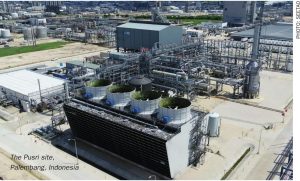
HIP Azotara to be dismantled for data centre
The nitrogen plants at HIP’s Azotara site are to be dismantled and removed as part of plans to convert the site to a data storage facility. Plants to be removed include the urea plant and urea storage facility, the UAN liquid storage facility, the calcium ammonium nitrate and nitric acid plans, and thegrain storage societies. In addition, the entire Block 6 is planned to be removed, which includes ammonia plants and storage, nitric acid and urea production, all of which have been out of operation for a long time.





